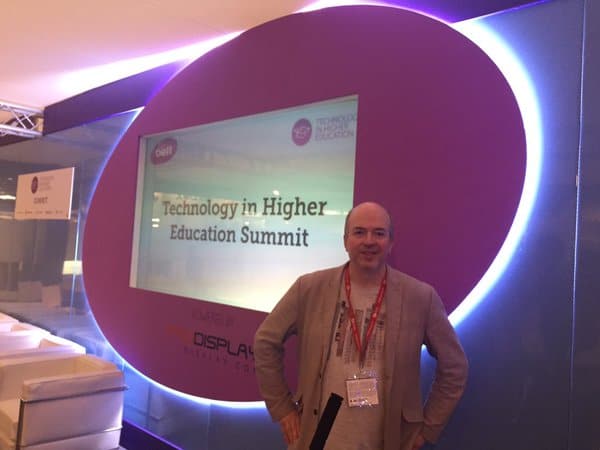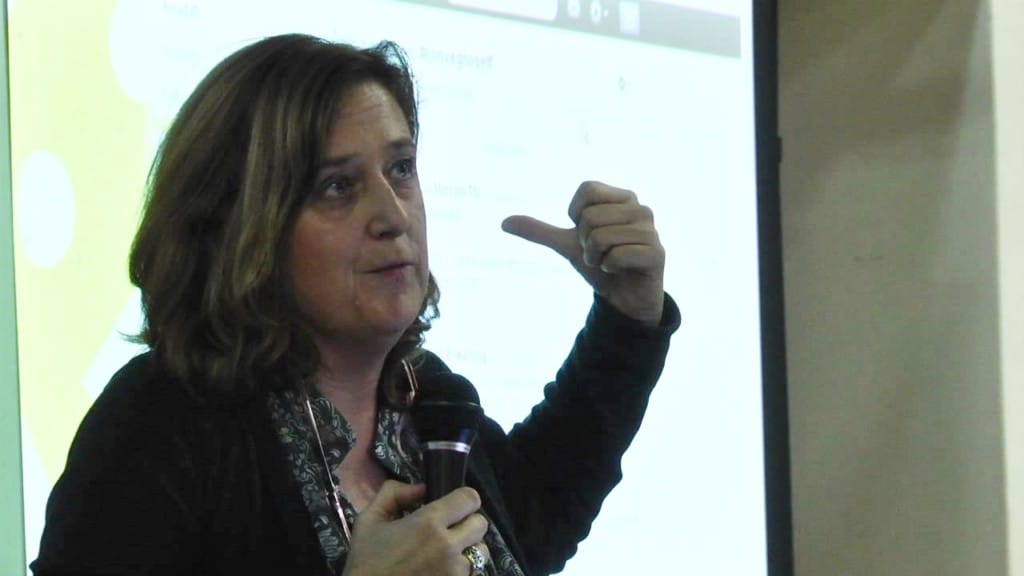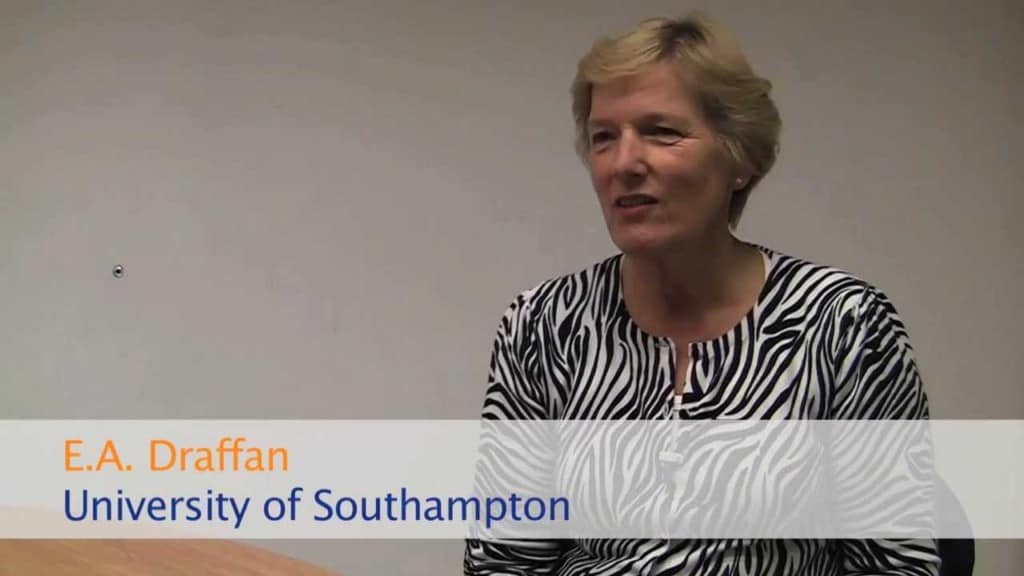What European Leaders in EdTech Think of the State of MOOCs: Part 3
In this third part of the series we cover what European EdTech leaders think about the phasing out of the term “MOOC”
Created in 1985 to showcase the applications of information technology in education, the BETT (British Educational Training and Technology Show) has progressively become one of the most important EdTech exhibitions by its scale. It has gathered 35,000 educators and professionals from the sector in ExCeL, London. In between two iterations of the show, I talked to several European EdTech leaders (representatives from FutureLearn, JISC, Open University, UCL Institute of Education, and so on) to get a “pulse” on the state of online learning in 2016. These discussions coalesced into several trends, which we will cover in a three part series. You can find part one of the series here, and part two here.
In this third part, we will cover the final four trends:
- the terminology “MOOC” is being phased out,
- the surge in certification,
- the diversification of activities tied to MOOCs, and
- online learning and accessibility.
Trend 6: The terminology of “MOOC” is confirmed to be being phased out.
Many products/services could have been considered as MOOCs two years ago, and now are named differently
Martin Hamilton (Futurist, Jisc)
“You keep using that word. I do not think it means what you think it means.”
In fact anyone who was involved in the early days of MOOCs must have developed a nervous twitch by now whenever the term comes up. Today so many MOOCs are neither massive nor open (in terms of content or participation), and in fact “that word” has become a shorthand for almost any sort of course that has at least some sort of online component. Because blended learning has too many syllables, perhaps?
So the term “MOOC” has become devalued and debased through its transition to common currency, in common with other tropes like “hacker,” “cloud,” and — everyone’s favorite — “big data.” However, those organizations that have been prepared to devote significant resources to online learning have achieved a critical mass that most traditional institutions could only dream of. Of course, as a UK EdTech person, FutureLearn’s 5 million learners stand out to me, and the question for FutureLearn is clearly “how can we build on this?” This is something they might do, for example, by testing and the accreditation of online learning.

Martin Hamilton, hosting panels in the BETT “Technology in HigherEd Summit” booth
Neil Harvey (FutureLearn)
Yes! It’s not a term we like using. The term “MOOC” was largely driven by the media around the time of the MOOC hype curve, and as a result it has become embedded as terminology. But as MOOC platforms continue to diversify their offerings, we hope that over time the term will be replaced. As mentioned previously, we prefer “social learning platform,” because that’s what differentiates us from most other platforms.
Yishay Mor (PAU Education / Levinsky teachers’ college)
MOOCs aren’t phased out, but are blended in in a continuum, and it’s the right thing. We had online course for 25 years. Then MOOCs came along in 2008, and suddenly everybody wanted to do them. But then some wanted a small MOOC, and therefore a SPOC (which has existed for decades!), and so on. MOOCs are a blurb in the spectrum, they have their role: blurring the lines, driving more hybridization. So more and more MOOCs are being developed, but they tend less and less to be called “MOOCs” because of those blurry lines and this new education continuum.
Susanna Sancassani (Managing Director, METID-Politecnico di Milano)
Even if it could be trendy to nominate something online as “MOOC,” it could be useful to remember that what “MOOCs” stands for is “Massive Open Online Course.”
So for calling something a MOOC it has to be:
- Massive: designed and operated to be able to receive a large number of people simultaneously;
- Online: available through an online platform, and delivered entirely online;
- Open: accessible to all, no mandatory prerequisites needed; and
- Course: it has to be a structured learning path that includes:
- a syllabus and explicit learning objectives;
- materials and support activities for learning;
- an evaluation system based on quizzes, exercises, or projects;
- a certification process; and
- a mentoring support and social context of use.
In this perspective, a MOOC is not:
- an OER (Open Educational Resources) repository,
- a blended course (although a blended course could be based on a MOOC),
- a program with a controlled / limited number of students, or
- a course for students of a particular university, or where access is restricted to those who have a previously acquired title.
Will Woods (Head of Learning and Teaching Technology, IET, Open University)
I think “MOOC” has been the catch-all for a number of different things, and now we are using more refined terminology: xMOOC, cMOOC, BOC, SPOC. For me it’s more important that we don’t confuse “open” as we get to the point where income generation is becoming the big theme because of the amount of venture capital invested in MOOCs; many so-called MOOCs are no longer “open” in the purest sense because there is a barrier, or paywall.
Trend 7: The certification surge
More and more solutions to recognize online learning
Yishay Mor
Indeed, there’s a certification trend, but with certification you introduce cost. It [the certificate] has financial value but also a cost, and therefore the cost of MOOCs is rising. If it’s not free, and not open, why do you call it MOOC? It’s good for the corporate market though.
Susanna Sancassani
The certifications are more and more interesting for online students in order to capitalize their learning for the job market or for further developments in their studies, but for certification to make a quantum leap we need to satisfactorily resolve some technical aspects of the online student identity validation. The TESLA project funded by the EU goes in this direction.
 Susanna Sancassani on how she is adapting MOOCs to suit her institution.
Susanna Sancassani on how she is adapting MOOCs to suit her institution.
Trend 8: the diversification of activities tied to MOOCs, notably under the impulse of EdTech startups
Online learning isn’t only about videos and quizzes anymore: now we see 3D simulations, VR/AR, and more. There’s also a combination with the maker movement, arduinos, and so on. MOOCs can accommodate this “hardware is the new software” trend.
Martin Hamilton (Futurist, Jisc)
Two zones at BETT were particularly interesting to me: the STEAM Village and the BETT Futures Startup Zone. At the STEAM Village, delegates had the opportunity to check out some of the maker technologies our children (or grandchildren!) are increasingly being exposed to at school. The stand-outs here were undoubtedly the BBC micro:bit, which has just been delivered to every child starting secondary education in the UK; and Astro Pi, the Raspberry Pi-powered science station that blasted off into orbit with UK astronaut Tim Peake’s Principia mission to the International Space Station. At the other side of the exhibition hall, the BETT Futures Startup Zone, curated by EdTech UK, provided a platform for some 30 EdTech startups that were positively fizzing with ideas and enthusiasm — a real counterpoint to the established firms with their massive market presence. Jisc’s products and services have around 18 million users across the UK and internationally, and we are very interested in how we can work together with incubators and accelerators to help startups to thrive and prosper.
Yishay Mor
This increased presence of physical computing and programming tools in BETT is explained by the fact that companies are trying to respond to the new curriculum in the UK (its aim is that every child from year 1 until the end of high school will do programming of some sort), so that opens up a new market. So teachers feel they have to deliver this curriculum that they don’t know how to teach, and therefore Lego and Rasperry Pi come with their solutions, sometimes with lessons plans, and so on.
Lot of schools are using this in the spirit of the maker movement (open-source, free, etc.), and many others are doing this in a conservative way. It’s not always bad, either.
There’s also a potential link that needs to be created/strengthened between MOOCs and hardware. For instance, MOOCs can train the teachers in this hardware revolution. They can also drive the building of communities for inquiries, where teachers can support each other through their learning of programming and hardware. Programming has to be done on the table with your finger, but what about the applications and the methodology, and how do you insert all this in your pedagogy? Those are some questions that MOOCs would be perfect at answering. There’s huge potential here.
Susanna Sancassani
The integration between online activities and physical actions is a very stimulating frontier of the online learning methodology. Some tools/environments — such as programmable robots, portable laboratory sets, and FABLAB — could be an interesting response in some contexts, but a more general answer to the question has still to be developed by the MOOC culture.
Will Woods
We have been experimenting with much of this within the Open Science Lab at the Open University. Many universities are catching on to remote experimentation, remote manipulation, simulation, inquiry learning, robotics, Augmented Reality, Virtual Reality, and so on. There is a huge potential to do more in this space, and we are just at the cusp of being able to make use of these technologies to create new and richer learning experiences.
Trend 9: online learning and accessibility
E.A. Draffan (WAIS, ECS , University of Southampton)
I would like the Os in MOOCs to remain “open” and “online,” with easy access being at the heart of the teaching and learning experience. I like the idea of material being available as an open educational resource so that it can be shared and repurposed, but there needs to be more guidance to ensure it is accessible to those who have disabilities and may use assistive technology. Some people like to change the look and feel of content by having larger fonts or different colored backgrounds, while others use text to speech, screen readers, or different types of input devices.

We are involved in two European projects (MOOCAP and Slidewiki) to deliver courses about making content digitally accessible, and to provide a framework so that those developing content can do so easily with the use of assistive technologies. When content is accessible, it is often more beneficial to everyone.
For instance, providing captions on videos helps those for whom English is not their first language, and allowing text to speech access means you can listen to content being read out aloud whilst taking notes. Having slides and documents that can be saved in other formats means that more people will use them. At their best MOOCs can provide equality, diversity, and inclusion to any learning environment, as well as being an adjunct to face-to-face learning, with discussions and interactions taking place in real time as well as in the future.
Summary
Other trends were observable at the show, such as the battle of e-learning tools’ ecosystems from big players like Microsoft and Google; the structuring of the UK market compared to other countries like France; portfolio-driven approaches (with Emaze, Canva, etc.); and the consolidation of the non-Western presence in the MOOC market with Asian actors, the Gulf states, and so on.
All in all, BETT is a confirmation of an overall trend we’ve analyzed on numerous occasions at Class Central: that MOOCs follow Gartner’s hype cycle. After a “peak of inflated expectations” (i.e. 2012: year of the MOOC) and a “trough of disillusionment” (i.e. 2014/2015: MOOCs are dead), MOOCs are climbing toward their “plateau of productivity.” After having been promised as a replacement to traditional education, they are finding their place, intertwined within the ecosystem; they stand as a catalyst, and a vector of change in the industry.
Stay tuned for our coverage of BETT 2017!
About the author: Yoni Dayan is an entrepreneur in EdTech and a teaching assistant for Stanford and NovoEd (Technology Entrepreneurship course). For five years he has been designing and updating online programs, creating and engaging learning communities, and experimenting on new ways to learn (social learning, VR/AR, etc.). Follow him on Twitter.






